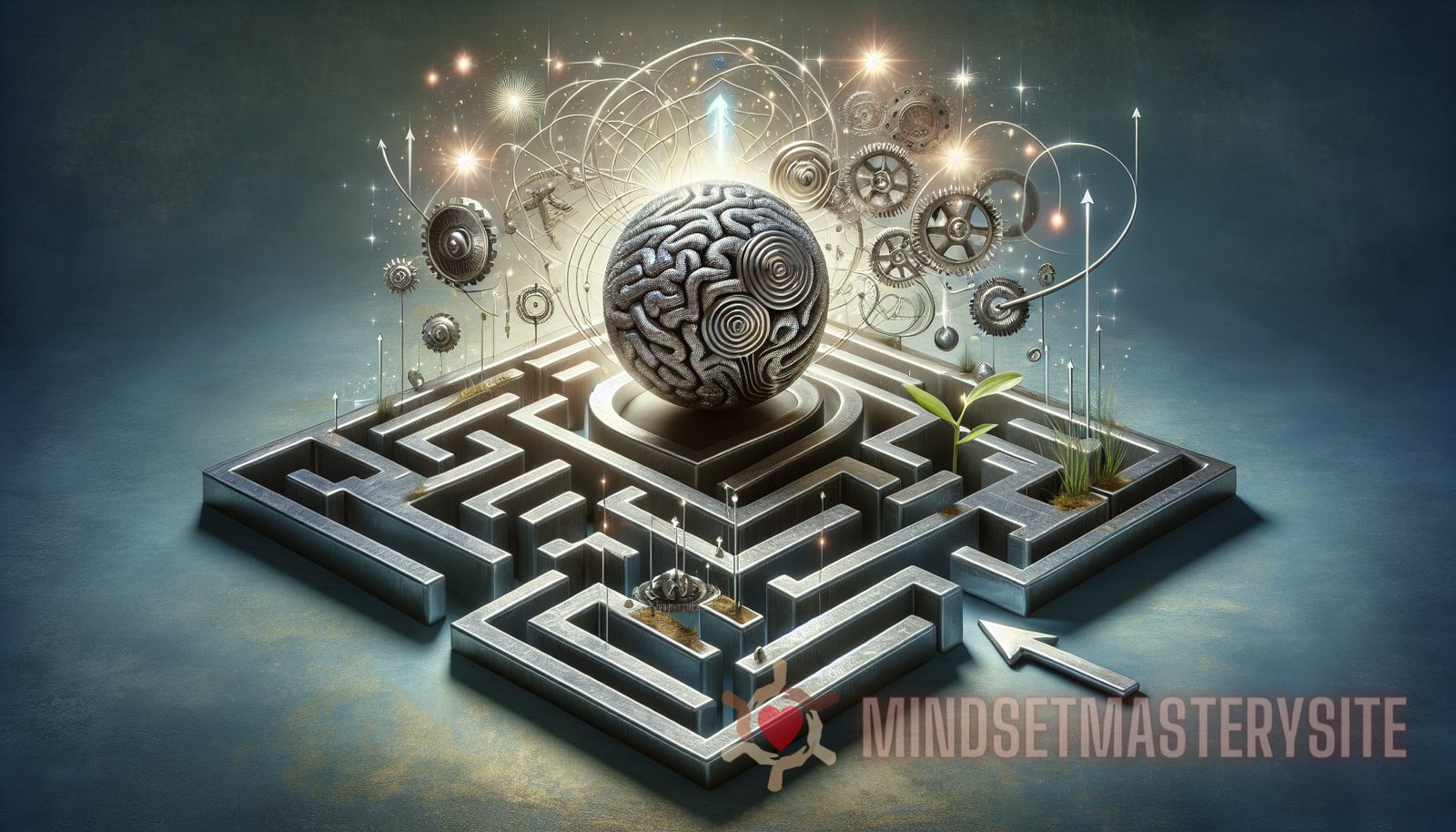Introduction
The human mind is a complex and fascinating organ, capable of incredible resilience in the face of adversity. Life is full of challenges, both big and small, and developing the cognitive factors necessary to overcome these challenges is essential for personal growth and success. In this article, we will delve into the concept of a resilient mindset, exploring the cognitive factors that contribute to this resilience and examining the psychological mechanisms that enable individuals to bounce back stronger from life’s setbacks. Through a comprehensive examination of the latest research and expert opinions, we will uncover the secrets to cultivating a resilient mindset and thriving in the face of adversity.
The Science of Resilience
Resilience can be defined as the ability to adapt and bounce back from difficult experiences. It is often thought of as a personality trait, but research shows that it is also a skill that can be developed and honed over time. Scientists have identified several cognitive factors that contribute to resilience and enable individuals to navigate adversity with strength and grace. Let’s take a closer look at these factors:
- Positive Thinking: Positive thinking plays a crucial role in developing resilience. It involves reframing negative thoughts and focusing on the positive aspects of a situation. By maintaining a positive outlook, individuals are better able to cope with stress, problem-solve, and find meaning in difficult experiences.
- Emotional Intelligence: Emotional intelligence refers to the ability to recognize, understand, and manage one’s own emotions and the emotions of others. This skill is essential for building resilience as it enables individuals to regulate their emotions, seek support when needed, and maintain healthy relationships.
- Adaptive Coping Strategies: Coping strategies are the thoughts and behaviors individuals use to deal with stress. While some coping strategies are maladaptive, such as avoidance or substance abuse, others are adaptive and promote resilience. These include seeking social support, engaging in problem-solving, and practicing self-care.
- Self-Efficacy: Self-efficacy is the belief in one’s ability to overcome challenges and achieve success. It is a key component of resilience, as individuals with high self-efficacy are more likely to persevere in the face of adversity and view setbacks as temporary and surmountable.
By cultivating these cognitive factors, individuals can develop a resilient mindset that enables them to thrive in the face of life’s challenges. But how exactly do these factors contribute to resilience? Let’s explore that next.
The Role of Cognitive Factors in Resilience
Resilience is not a fixed trait; it is something that can be developed and strengthened through the cultivation of cognitive factors. These factors play a crucial role in the resilience process, influencing how individuals perceive and respond to adversity. Here’s how each factor contributes to resilience:
Positive Thinking
Positive thinking is a powerful tool for building resilience. When faced with adversity, individuals with a resilient mindset are able to reframe negative thoughts and find the silver lining in challenging situations. This positive reframing helps individuals to regulate their emotions, maintain a sense of hope, and problem-solve effectively. Research has shown that positive thinking is associated with lower levels of stress, better mental health outcomes, and a greater ability to bounce back from setbacks.
Want to learn more about how positive thinking can help you build resilience? Check out this article for valuable insights and expert advice on mastering the art of bouncing back stronger.
Emotional Intelligence

Emotional intelligence is another essential cognitive factor in building resilience. Individuals with high emotional intelligence are better able to recognize their own emotions and the emotions of others, allowing them to respond to adversity in a more constructive and adaptive manner. By regulating their emotions effectively, seeking support when needed, and maintaining healthy relationships, emotionally intelligent individuals are better equipped to cope with stress and rebound from setbacks.
If you’re interested in learning more about how emotional intelligence can help you thrive in the face of adversity, take a look at this article which delves into the transformative power of personal growth.
Adaptive Coping Strategies
Adaptive coping strategies are the thoughts and behaviors individuals use to cope with stress in a healthy and constructive manner. By seeking social support, engaging in problem-solving, and practicing self-care, individuals can navigate adversity more effectively and cultivate resilience. Adaptive coping strategies promote psychological well-being, reduce the negative impact of stress, and facilitate personal growth and adaptation.
Self-Efficacy
Self-efficacy is a belief in one’s ability to overcome challenges and achieve success. It is an important cognitive factor in resilience, as individuals with high self-efficacy are more likely to persevere in the face of adversity and view setbacks as temporary and surmountable. By cultivating a sense of self-efficacy, individuals can build resilience and maintain optimism even when faced with difficult circumstances.
Cultivating a Resilient Mindset
Now that we understand the cognitive factors that contribute to resilience, how can we cultivate a resilient mindset? Here are some strategies that can help:
- Challenge Negative Thoughts: Practice reframing negative thoughts and finding the positive in challenging situations. Focus on the opportunities for growth and learning that adversity can bring.
- Build Emotional Intelligence: Develop your emotional intelligence by practicing self-awareness, empathy, and effective communication. Seek out opportunities for personal growth and emotional regulation.
- Adopt Adaptive Coping Strategies: Identify and practice adaptive coping strategies such as seeking social support, engaging in problem-solving, and practicing self-care. Explore different coping strategies and find what works best for you in different situations.
- Cultivate Self-Efficacy: Build your self-efficacy by setting realistic goals, breaking them down into manageable steps, and celebrating your achievements along the way. Surround yourself with positive and supportive people who believe in your abilities.
- Practice Self-Compassion: Be kind to yourself and practice self-compassion. Treat yourself with the same kindness and understanding you would offer a friend facing adversity. Remember that setbacks are a natural part of life, and you are doing your best.
By implementing these strategies into your daily life, you can develop a resilient mindset that will enable you to overcome life’s challenges and thrive in the face of adversity.
Conclusion
Developing a resilient mindset is crucial for navigating life’s challenges with strength and grace. By cultivating positive thinking, emotional intelligence, adaptive coping strategies, and self-efficacy, individuals can build the cognitive factors necessary for resilience. These factors enable individuals to reframe negative thoughts, regulate their emotions, seek support when needed, and bounce back stronger from setbacks. By implementing strategies such as challenging negative thoughts, building emotional intelligence, and adopting adaptive coping strategies, individuals can cultivate a resilient mindset and thrive in the face of adversity. So, embrace the power of resilience and unlock your full potential!



